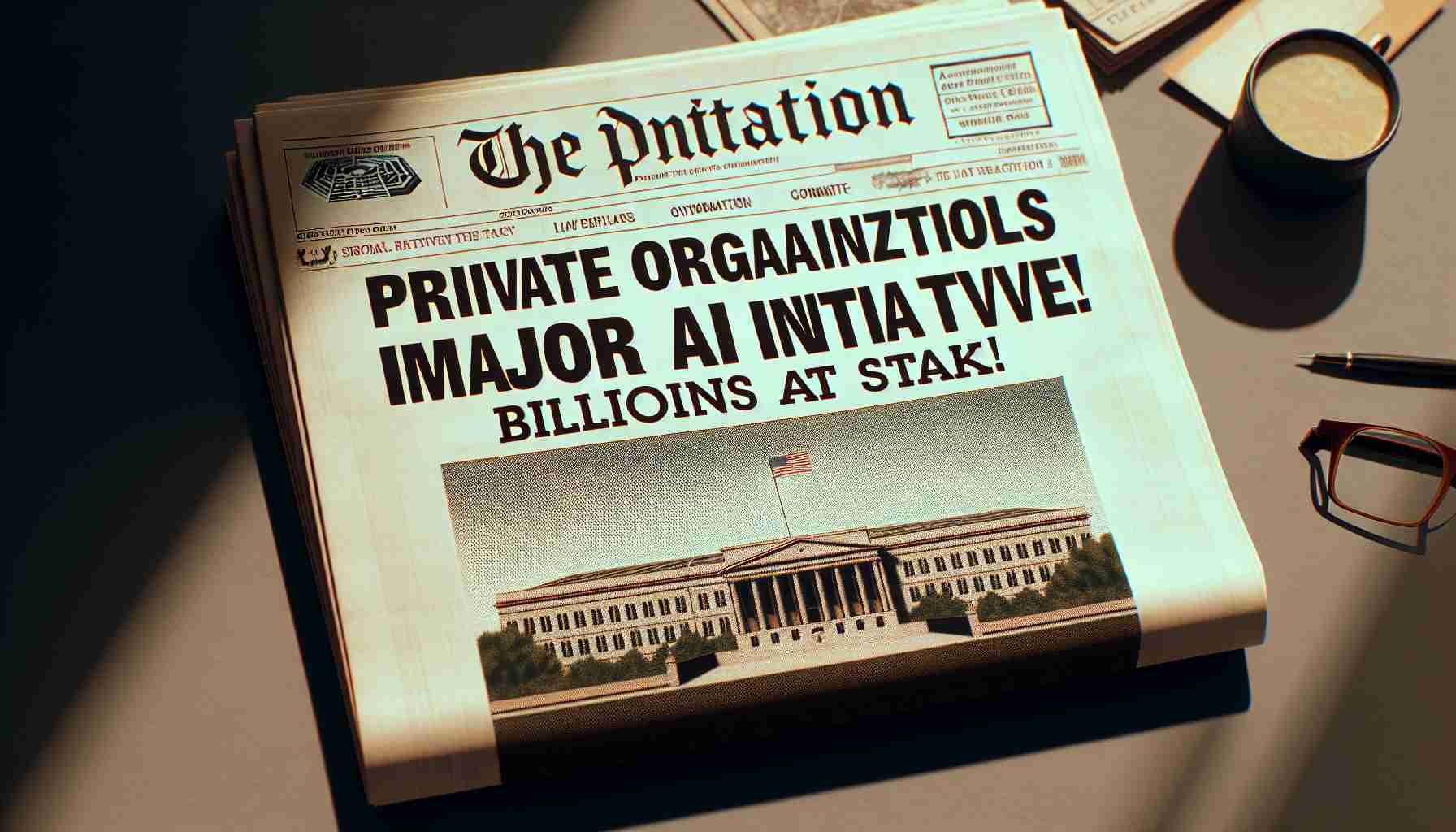Major AI Contract Draft Released
The Pentagon has just released the initial draft for what might be the largest government AI contract ever proposed, potentially valued at a staggering $15 billion over the next decade. Named the Advancing AI Multiple Award Contract, this initiative welcomes feedback for a month from prospective contractors. The primary aim of the contract is to enhance Advana, the Department of Defense’s flagship data analytics platform, while also making it available for all DoD sectors to procure additional AI technologies.
USPS Gears Up for Holiday Surge
As the holiday season approaches, the United States Postal Service (USPS) anticipates significant upgrades that will enhance its operations. The organization’s facilities are undergoing a major revamp, enabling them to handle an impressive 60 million packages daily, thereby exceeding past records. This season also marks the debut of custom-built electric delivery vehicles, boasting double the cargo capacity compared to older models.
Cybersecurity Strategies Under Review
In the realm of cybersecurity, a government oversight body is recommending that the White House National Cyber Director spearhead a national strategy for quantum computing security. Recent findings reveal that while federal agencies are making strides towards adopting post-quantum cryptographic standards, a lack of robust leadership might hinder progress.
Potential Changes to CyberCorps Program
Meanwhile, two bipartisan lawmakers are pushing to extend the CyberCorps Scholarship for Service program, increasing support from three to five years. This initiative aims to broaden access for students pursuing advanced cyber degrees, aiding government agencies in attracting essential cyber talent.
Massive AI Contract Unveiled: What It Means for Contractors and the DoD
### Major AI Contract Overview
The Pentagon has made headlines by releasing an initial draft for what could become the largest government AI contract in history, potentially worth up to $15 billion over the next ten years. Dubbed the Advancing AI Multiple Award Contract, this initiative seeks to significantly enhance the Department of Defense’s (DoD) Advana data analytics platform. Prospective contractors are invited to provide feedback for one month, marking the beginning of a transformative effort to bolster AI technologies across various sectors of the DoD.
### Key Features and Specifications of the Contract
1. **Value and Duration**: The contract is projected to reach $15 billion over a decade, indicating significant commitment and investment in AI technologies.
2. **Focus Areas**: The primary goal centers on improving the Advana data analytics platform, a vital tool for data-driven decision-making within the DoD.
3. **Contractor Scope**: The contract allows for multiple award opportunities for various contractors, creating a competitive landscape for technology firms.
### Market Insights and Trends
The global AI market is expected to reach USD 733.7 billion by 2027, growing at a CAGR of 42.2%. This government initiative aligns with larger trends in AI adoption across industries, as organizations increasingly recognize the importance of data analytics in operational efficiency.
### Pros and Cons of the Advancing AI Contract
**Pros:**
– **Increased Competition**: By opening the contract to multiple firms, the DoD can leverage diverse talents and innovations.
– **Enhanced Defense Capabilities**: By improving data analytics capabilities, the DoD can enhance its operational effectiveness and strategic decision-making.
**Cons:**
– **Complex Implementation**: Integrating new AI technologies across various sectors may pose challenges.
– **Cost Overruns**: Given the contract’s scale, there’s a risk of budget overruns and delays in deployment.
### Use Cases for Advana Enhancement
1. **Operational Readiness**: Improved data analytics can lead to better logistical planning and resource allocation.
2. **Threat Analysis**: Enhanced AI capabilities could revolutionize threat detection and response mechanisms.
3. **Predictive Maintenance**: By analyzing data from military assets, the DoD can predict maintenance needs more effectively.
### Insights on Cybersecurity Initiatives
In parallel developments, a government oversight entity is advocating for a national strategy focused on quantum computing security. This move is crucial as federal agencies are beginning to adopt post-quantum cryptographic standards, although a void in leadership hampers comprehensive implementation.
The potential extension of the CyberCorps Scholarship for Service program by bipartisan lawmakers aims to facilitate longer support for students pursuing critical cyber degrees, enhancing the talent pool available to government agencies.
### Pricing and Future Predictions
As the demand for cybersecurity and AI solutions surges, the projected financial commitment of $15 billion for the AI contract highlights the balancing act between innovation and budgetary constraints. As more stakeholders participate, expected growth in both sectors can yield innovations that enhance national security.
For more information on the Pentagon’s AI initiatives, visit the Department of Defense website.
### Conclusion
The Advancing AI Multiple Award Contract signifies a pivotal moment in the intersection of technology and defense. With robust market growth predictions and an increasing need for effective data management and cybersecurity, this initiative is set to shape the future of defense operations.
